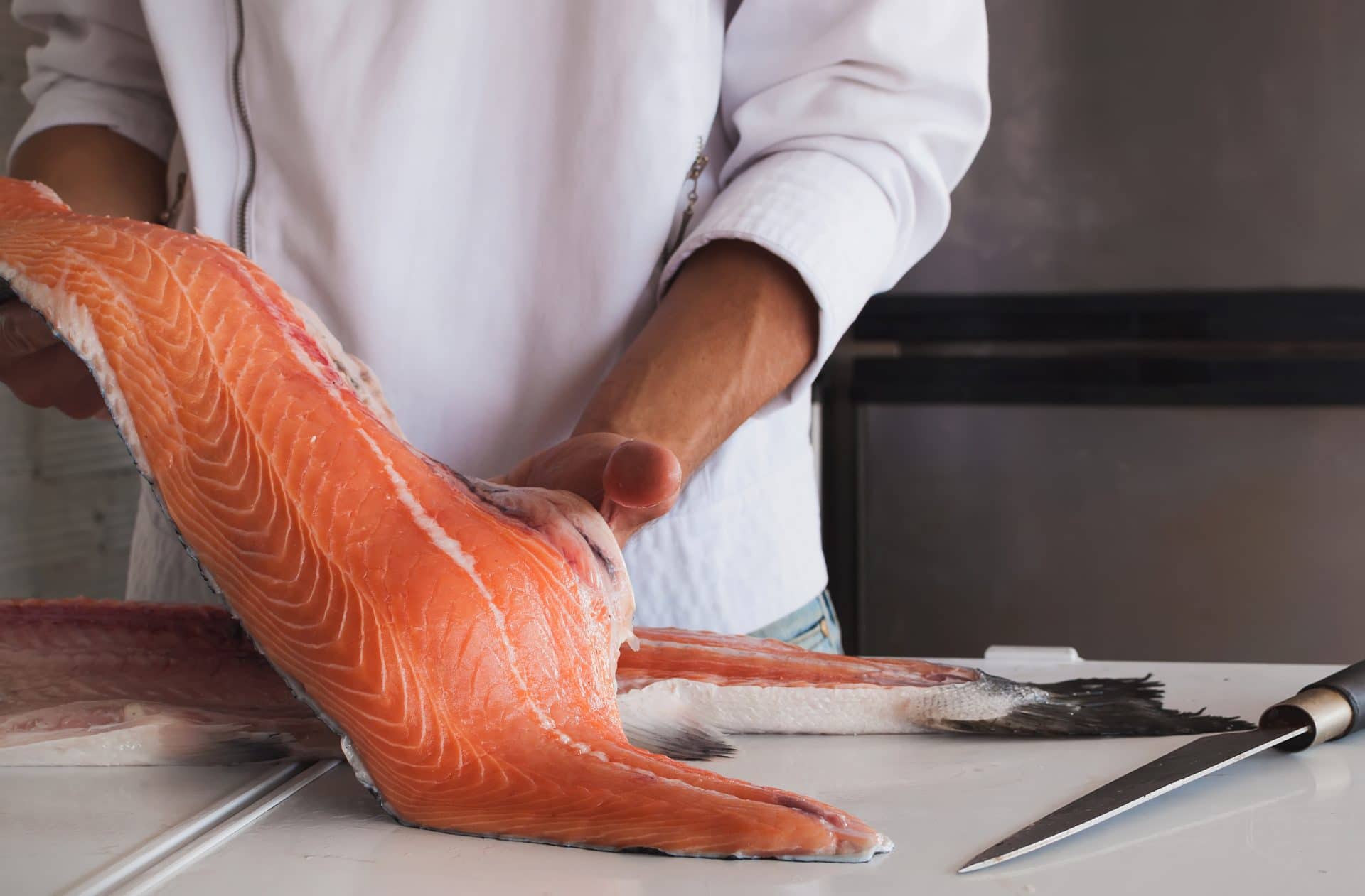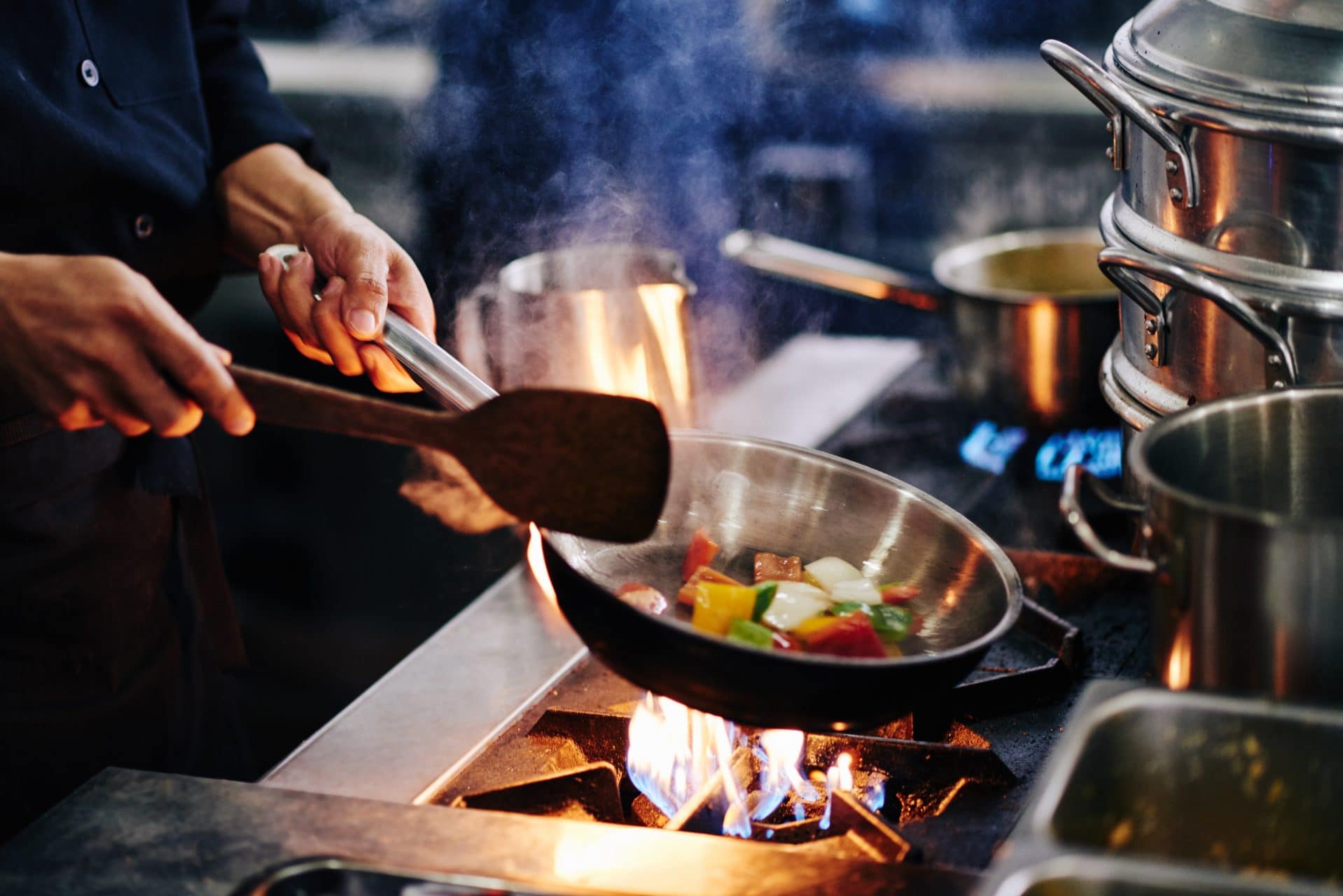
For the first time in many years I have been searching for a job and what I have discovered is more than a little worrying. I started out in the hospitality industry over 30 years ago and I have been self-employed for the past fifteen years running my own restaurants in Spain and France. But I have now sold my restaurant and before starting my new project I have decided to spend some time in my home country of Britain and get a job in a kitchen.

During college and my earlier years in the industry I learned a series of skills that have enabled me to progress and to run my own kitchen. Basic knife skills such as filleting fish or boning out a loin of beef, how to make a sauce, a soup or a dessert. Once these skills have been learned it is easy to develop them and start using them to carry out more complicated tasks and produce more adventurous dishes.
Even through a process of trial and error you can learn about flavours and how to match them within dishes. But, unfortunately, what I have learned recently is that these basic kitchen skills are no longer being developed or used.
After looking at various job adverts and reading menus for those places recruiting it appears that menus have become very standardised with the majority of dishes pre-prepared and bought-in frozen and pre-portioned. I have started working through a chef agency and have been placed at a chain hotel in Taunton.
I turned up on day one with my chef whites and knife roll expecting to do a full prep for the evening service. It turns out that on the hotel’s extensive menu the majority of the dishes are ready-made, frozen, pre-portioned and reheated either using a steamer or microwave. Cooking is limited to potatoes and rice and blanching vegetables. Sure there is some cooking involved in steaks and mixed grills – but even these are pre-packed in the correct portion. But chillis, curries and sauces are in plastic pouches that get re-heated. My knife roll is now at home!
There is, of course, some reasoning behind taking the skills away from high volume, chain establishments and I blame McDonald’s. The power of the “brand” is now so important that head office can no longer accept that there could be any variation in their product from one place to another throughout the World. This extends, not only to the food offering, but to the decor and staff uniform – in fact the word “uniform” covers it all, or, perhaps more accurately, bland!
I can understand the need for consistency, especially with a brand like McDonald’s, but not for hotel groups or restaurants. As a chef I can read through menus and tell you which items are bought-in frozen and deep fried or microwaved to serve them and I find it very disheartening.

The other benefit to the company is, of course, cost which is realised in several ways. Firstly, through the use of central purchasing and giving the supply contract to only a couple of suppliers the company can exercise enormous buying power. Mass-produced, centrally-produced and portioned meals obviously cut down on any wastage in the kitchen, giving the company a guaranteed gross profit on the finished product.
Chefs, particularly poorly trained ones, can be very careless with portion sizes. Secondly, by removing some skills from the kitchen the company is saving on the time required for preparing a long-winded menu and also saving on paying higher wages to a skilled chef. There is currently a recruitment crisis within the UK hospitality industry and I imagine for a company trying to fully-staff its kitchen it may be useful to employ less skilled staff.
Unfortunately, the longer term outcome of these “savings” is that we are all consuming mass produced meals full of artificial ingredients and the dining experience has become very uninteresting.
Are we in danger of producing a generation of chefs who only know how to reheat and open packets? I sincerely hope not! Obviously, there are still plenty of restaurants out there that are independently owned and rely on highly trained, skilled , experienced chefs but the larger groups are taking over and gradually killing the creativity and skills that are required to be a decent chef.
A professional kitchen will tend to produce, from scratch, a fairly short menu whereas the large chain restaurants seem to try to put every food type on a long, rambling menu in an attempt to cater to everyone’s taste. What happened to hotels producing a daily menu for its residents?
Do me a favour – support your local restaurant that employs skilled kitchen teams and accept the “chains” for what they are!